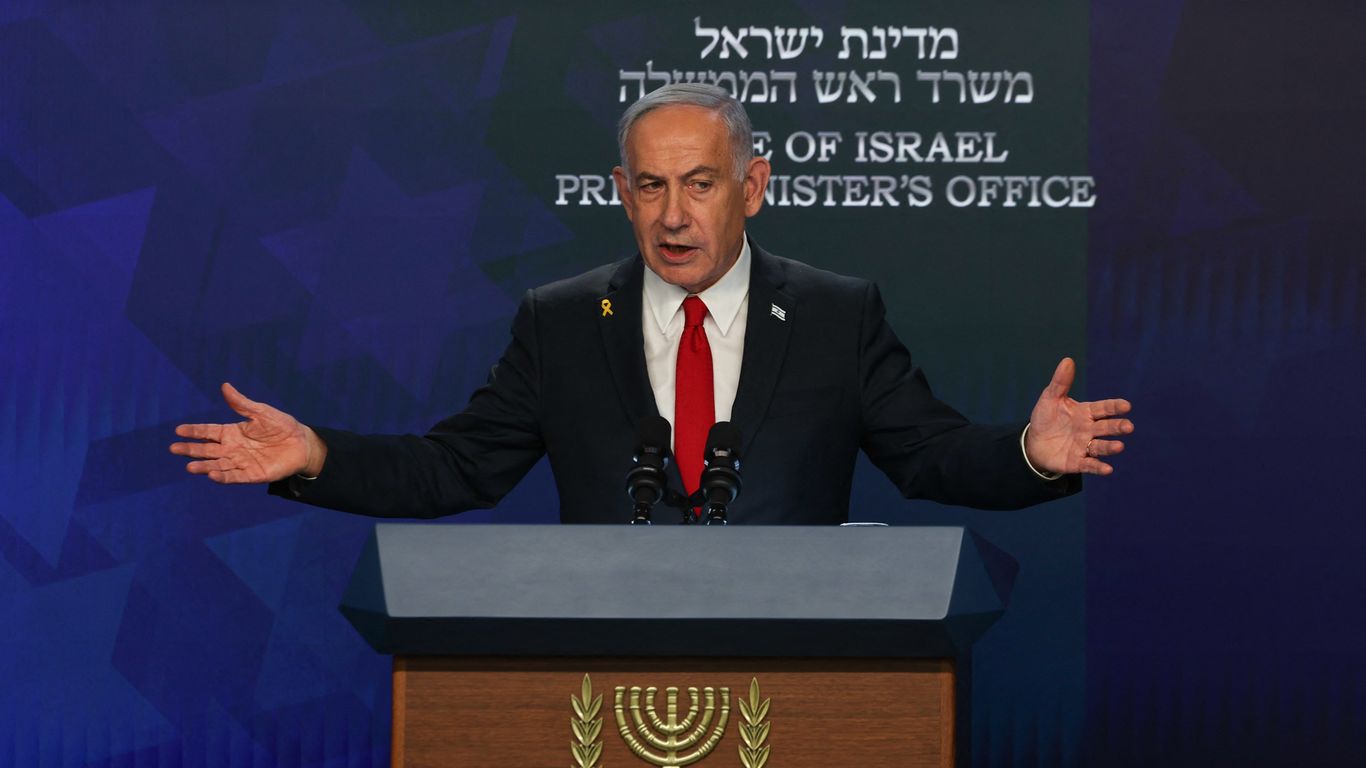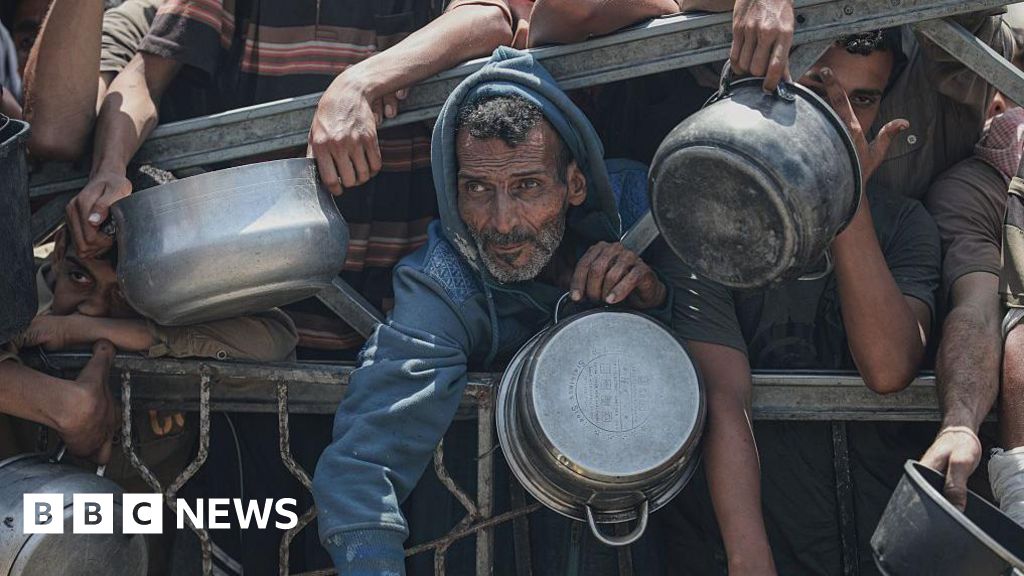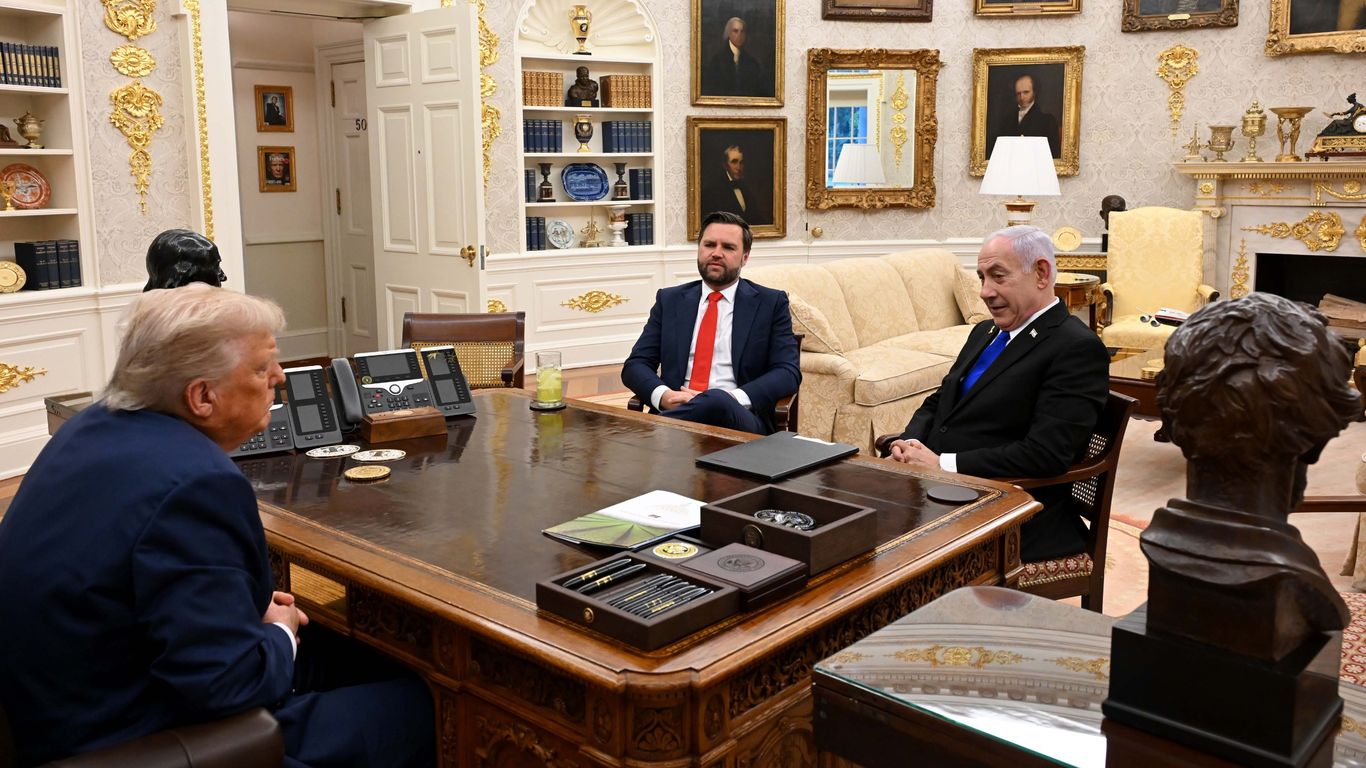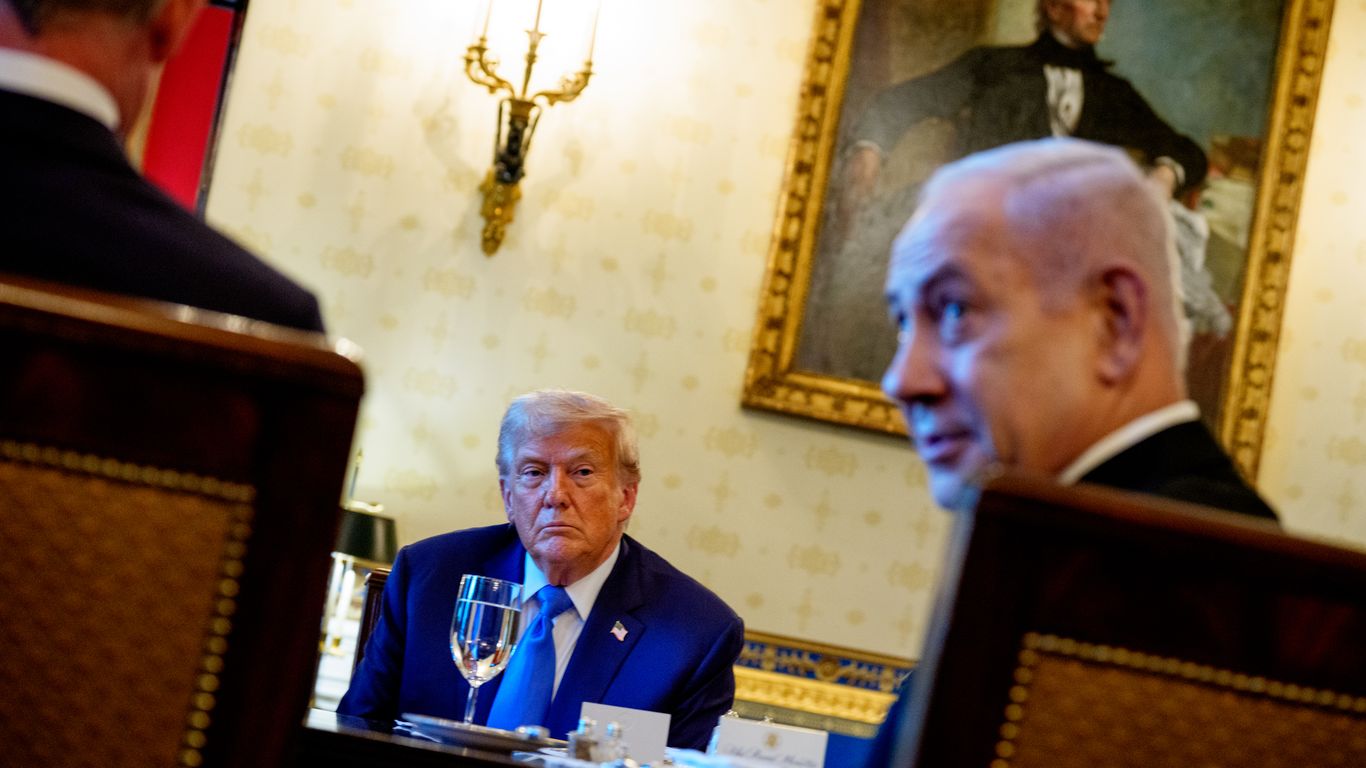Netanyahu Announces Negotiations for Hostage Release and Ceasefire in Gaza

Introduction
Israeli Prime Minister Benjamin Netanyahu has announced that he has ordered “immediate negotiations” for the release of all hostages and to bring an end to the ongoing conflict in Gaza. This comes as Israel continues its operation in Gaza City, with the goal of stopping the barrage of rocket attacks from Hamas.
Key Details
Netanyahu’s statement comes in the wake of recent escalations in violence, with both sides suffering casualties and significant damage to infrastructure. The Israeli military has been targeting Hamas militants and their infrastructure in response to rocket attacks launched from Gaza. The conflict has also led to international concern and calls for a ceasefire.
Impact
The announcement for negotiations by Netanyahu is a significant development in the ongoing conflict. It signals a potential shift towards finding a peaceful resolution to the conflict. However, it remains to be seen whether Hamas will agree to the terms proposed by Israel. The situation remains volatile, and the international community continues to call for de-escalation and a return to negotiations.
About the People Mentioned
Benjamin Netanyahu
Benjamin Netanyahu, born on October 21, 1949, in Tel Aviv, Israel, is a prominent Israeli politician and diplomat who has served as Prime Minister of Israel three times (1996–1999, 2009–2021, and from 2022 onwards). He began his career in the Israeli military's special operations and later transitioned into politics in the late 1980s, joining the Likud party[1][2]. Netanyahu first became prime minister in 1996, during which time he signed the Hebron and Wye Accords, advancing peace efforts with the Palestinians. His administration focused on economic reforms such as government privatization, liberalizing currency regulations, and reducing deficits. After losing the 1999 election, he served as foreign minister and finance minister before reclaiming the Likud leadership in 2005[1][3][4]. Returning as prime minister in 2009, Netanyahu formed a national unity government and proposed a demilitarized Palestinian state recognizing Israel as the Jewish state, emphasizing security concerns. His tenure was marked by fluctuating peace negotiations with the Palestinians and contentious policies including settlement expansions. He also maintained a hawkish stance on Iran and supported the Iraq war[1][3][5]. In 2022, Netanyahu made a political comeback as prime minister, leading a coalition that included far-right parties. His leadership during this period has been pivotal amid the 2023–2024 Israel-Hamas conflict, with significant domestic and international implications[2]. Netanyahu is Israel’s longest-serving prime minister and remains a central figure in Israeli politics, known for his strong security policies, economic reforms, and complex role in the Israeli-Palestinian conflict. His career has been marked by both political resilience and controversy, reflecting his enduring influence on Israel’s domestic and foreign affairs[2][3][5].
About the Organizations Mentioned
Hamas
**Hamas** is a Sunni Islamist Palestinian nationalist organization that functions both as a political party and a militant group, primarily operating in the Gaza Strip, which it has governed since 2007. Founded in 1987 by Ahmed Yassin amid the First Intifada, Hamas emerged from the Muslim Brotherhood and initially had covert Israeli support as a counterweight to the secular Palestinian Liberation Organization (PLO)[3][1]. It combines political governance with an armed wing, the al-Qassam Brigades, committed to armed resistance against Israel, which it refuses to recognize as a legitimate state[1][3]. Hamas’s political rise culminated in a 2006 electoral victory in the Palestinian Legislative Council, campaigning on anti-corruption and resistance platforms. After violently seizing Gaza from the rival Fatah faction in 2007, Hamas has maintained de facto control there despite international isolation and blockades imposed by Israel and Egypt[3]. Its governance has been marked by repeated conflicts with Israel, including major wars in 2008–09, 2012, 2014, 2021, and the ongoing intense conflict triggered by Hamas’s surprise October 2023 attack killing nearly 1,200 Israelis and taking hostages[1][2][3]. Hamas benefits from regional support, especially from Iran, which supplies funding and weapons, as well as financial and political backing from Turkey and Qatar. These alliances form part of a broader "axis of resistance" against Israel, which includes groups like Hezbollah and Palestinian Islamic Jihad[2]. Hamas also operates fundraising networks globally, sometimes using charities as fronts to support its military activities[4]. The group is designated a terrorist organization by many countries, including the United States, which has increased military aid to Israel following recent escalations[2][6]. Despite modifying its 1988 charter in 2017 to soften some language, Hamas continues to reject Israel’s legitimacy and pursues all forms of resistance[1]. Its enduring political
Israeli military
The Israeli military, officially known as the Israel Defense Forces (IDF), is a highly integrated and technologically advanced defense organization. Established in 1948 following Israel's declaration of independence, the IDF has evolved into a robust force comprising the army, navy, and air force. Its core mission is to protect Israel's sovereignty and security in a region with multiple strategic challenges. ## History and Evolution The IDF's history is marked by adaptability and innovation. Initially structured as a ground-forces army with air and naval support, it has transformed over the years to incorporate cutting-edge technology and specialized units. The IDF has played a pivotal role in numerous conflicts, including the 1967 Six-Day War and the 1973 Yom Kippur War, where it demonstrated its strategic capabilities. ## Key Achievements - **Technological Advancements**: The IDF is renowned for its technological prowess, particularly in missile defense systems like the Arrow and Iron Dome. These innovations have significantly enhanced Israel's defense capabilities. - **Specialized Units**: The IDF boasts elite units such as the Paratroopers and the Commando Brigade, which have been instrumental in counter-terrorism operations. - **International Cooperation**: The IDF has fostered close military relations with the United States, contributing to joint projects and strategic planning. ## Current Status Today, the IDF faces a complex security landscape with multiple fronts, including threats from Hezbollah, Hamas, and Iranian proxies. In response, Israel is debating future force structures, emphasizing strategic planning, technological integration, and regional defense alliances. ## Notable Aspects - **Integration and Innovation**: The IDF's structure combines air, ground, and sea forces more closely than most militaries, allowing for rapid mobilization and coordination. - **Conscription and Reserves**: The IDF relies heavily on conscription and a well-trained reserve force, ensuring a robust military capability despite its relatively small active-duty component. - **Societal Impact**: Beyond defense, the IDF plays a significant role

















